Site Search
- resource provided by the Forum Network Knowledgebase.
Search Tip: Search with " " to find exact matches.
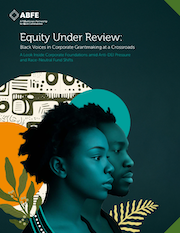
This ABFE report reflects on the evolving corporate philanthropy's commitment to Black communities.
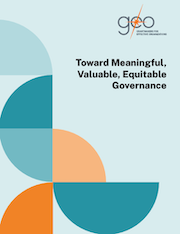
This Grantmakers for Effective Organizations's latest report outlines the potential of more effective governance, highlighting promising practices that grantmakers are testing and learning from as they explore governance purpose, roles, relationships...
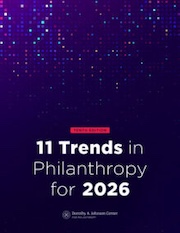
Dorothy A. Johnson Center for Philanthropy milestone tenth edition report reflect on the themes that have shaped our sector over the past ten years, and named both enduring shifts and new developments. This report aims to help fundraisers, grantmakers...
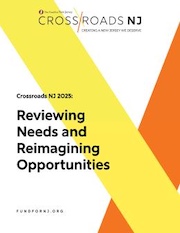
The Fund for New Jersey’s latest policy report includes a scorecard evaluating the state’s progress on the recommendations they issued in 2017 across seven key area: Climate and the Environment, Criminal Justice, Education, Housing, Jobs and the...
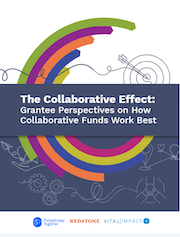
This report lifts up grantee voices to illuminate why and how collaboratives are uniquely positioned to build trust, shift power, and deliver impact far beyond their size.
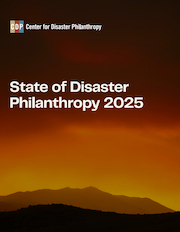
This 12th edition of the State of Disaster Philanthropy by Center for Disaster Philanthropy explores 2023 giving and practices, how philanthropy is responding to current changes and uncertainty, and strategies to strengthen disaster philanthropy.
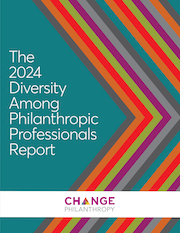
This fourth edition of the Diversity Among Philanthropic Professionals Report (DAPP) aims to help the philanthropic community better understand its workforce and leadership utilizing data from surveys submitted by individual respondents based at...
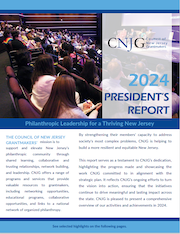
CNJG's President's Reports
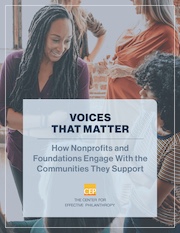
This report offers key insights into the current landscape of community feedback in the philanthropic sector. Based on extensive survey data from 241 nonprofits and 243 foundations, the report explores how these organizations collect and utilize...
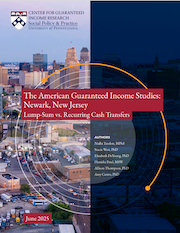
This guide outlines the findings of a study on housing insecurity, and it proposes a pilot program for guaranteed income.
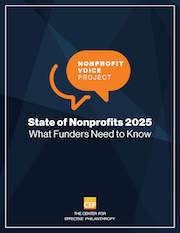
Nonprofit leaders identify the polarized and unpredictable political climate as one of their key challenges, posing risks to funding, organizational missions, and the communities they serve. This report analyzes survey responses from 585 nonprofit...
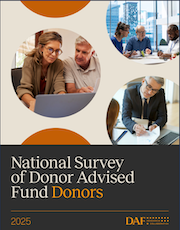
This report offers a comprehensive look into the characteristics and perspectives of individuals and families who utilize DAFs for their charitable giving in the United States. The study surveyed over 2,100 DAF donors, focusing on their demographics,...
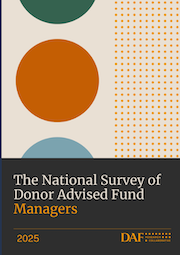
There is considerable variation between DAF sponsors. To gain deeper insight into DAF sponsors’ perceptions, policies, and practices, the DAFRC gathered data from 128 DAF sponsor managers nationwide. This report highlights information about DAF...
This weekly funder briefing webinar series welcomed New Jersey-based grantmakers along with national funders and provided an opportunity for grantmakers to hear from a wide range of nonprofit experts. This series started on March 13, 2025, less than a...
This weekly funder briefing webinar series welcomed New Jersey-based grantmakers along with national funders and provided an opportunity for grantmakers to hear from a wide range of nonprofit experts. This series started on March 13, 2025, less than a...
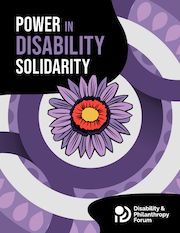
Five stories showcase disability solidarity in efforts from Black liberation, participatory grantmaking, art funding, community foundations, and much more. Collectively, each story demonstrates that when we unite as a community in solidarity, we can...
The Newark Philanthropic Liaison is a unique partnership between the Council of New Jersey Grantmakers and the City of Newark, supported by several foundations. Read more about the Liaison’s work In these reports. Due to several transitions, there...
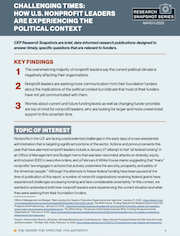
CEP surveyed a nationally representative sample of nonprofit leaders to understand how nonprofits are experiencing the rapid shifts in policy from the new presidential administration and the current political climate.
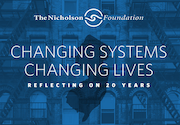
For 20 years, The Nicholson Foundation worked to advance meaningful change in safety net service systems in New Jersey. Its grantmaking journey is described in Changing Systems, Changing Lives: Reflecting on 20 Years. Through stories and related text...
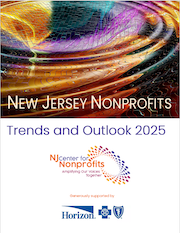
NJ Center for Nonprofits annual survey of the nonprofit community, shows that economic uncertainty, staffing shortages, tightening funding streams are among the top concerns nonprofits are navigating. New Jersey’s 41,000 charitable nonprofits are a...
